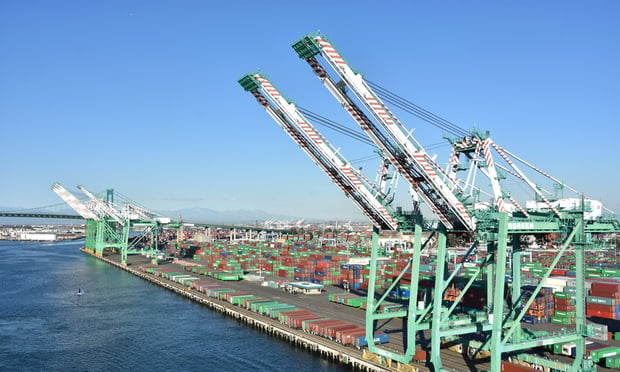Commissioned last fall, the study focused on services such as cargo transloading, labeling, bar coding, sorting, packaging, repair and modifications that increase the value of goods and speed them through the supply chain. The overall distribution and logistics industry, which accounts for one in 10 jobs in the region, includes the value-added distribution segment, together with traditional long-term product warehousing, product transportation, and related businesses such as freight forwarders, customhouse brokers and consolidators.
The Port commissioned the study so it could better understand the distribution industry's contributions to the region and better estimate the industry's need for industrial land in the future. "In this global economy, managing your transportation costs and quickly serving your customers requires a unique combination of freight transportation and available industrial land," says the Port's executive director Bill Wyatt. "Historically, this region has had a competitive advantage for freight transportation. On the other hand, the Portland area's industrial land resources are dwindling. We must look for ways to provide sites that businesses need for their modern distribution operations."
The study found the value-added distribution segment created nearly $810 million in personal earnings and paid $88.6 million in taxes to state and local governments in 2003. "This study confirms the significant and positive economic impacts that modern distribution center operations have in our region," says Wyatt. "What's more, distribution-related jobs pay about $9,000 more per year than the average of other jobs in this region, and Portland has a higher concentration of these jobs than most other cities across the nation."
The Port owns and/or manages more than 9,700 acres of land in and around Portland, including seven commercial/industrial parks that host many of the region's transportation, distribution and trade-related activities. In addition to jobs, income and economic impacts, distribution operations help maintain the metro region's advantages as a hub for trade, says Wyatt, which build on the region's geographic advantages for attracting and retaining businesses and jobs.
Martin Associates based its conclusions on a survey of 67 distribution operations in the metropolitan area that provide value-added services in addition to traditional warehousing and freight transportation. Martin Associates surveyed a wide cross section of the metro area's distribution companies, including those handling apparel, consumer goods, foodstuffs, paper products, beverages, steel, lumber and miscellaneous commodities like animal feed.
"From a larger trade perspective, the impacts this industry provides reach far beyond the geographical boundaries of our analysis, benefiting businesses throughout Oregon, Southwest Washington and all the way to Idaho," says Martin Associates president John Martin. "That's because, in Portland, this industry helps generate a critical mass of transportation services that businesses throughout the region both need and use."
Continue Reading for Free
Register and gain access to:
- Breaking commercial real estate news and analysis, on-site and via our newsletters and custom alerts
- Educational webcasts, white papers, and ebooks from industry thought leaders
- Critical coverage of the property casualty insurance and financial advisory markets on our other ALM sites, PropertyCasualty360 and ThinkAdvisor
Already have an account? Sign In Now
© 2024 ALM Global, LLC, All Rights Reserved. Request academic re-use from www.copyright.com. All other uses, submit a request to [email protected]. For more information visit Asset & Logo Licensing.








